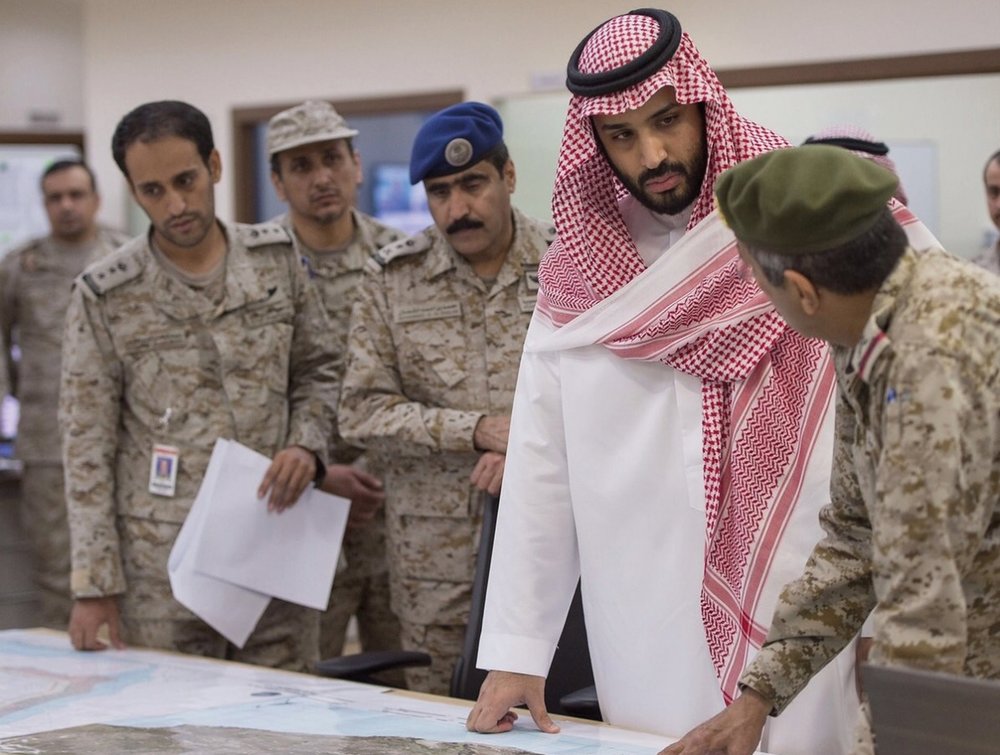Saudi-led coalition makes mockery of Yemen truce

TEHRAN - After week-long marathon peace talks in Sweden, facilitated by the United Nations, Yemen’s warring parties agreed to an immediate ceasefire in Hodeidah city and the ports of Hodeidah, Ras Issa and Saleef, in a bid to resolve the country’s humanitarian crisis and scale down fighting.
The landmark agreement was announced by UN chief Antonio Guterres on Thursday. Pictures of Yemen's foreign minister Khaled al-Yamani and rebel negotiator Mohammed Abdelsalam shaking hands with Guterres looking on made it to front pages of newspapers across the world.
It certainly was an extraordinary moment that rekindled hopes of a peaceful future for Yemen. But, war-mongers feel anxious and threatened every time peaceniks come together. They are averse to peace and stability because they have vested interest in chaos and mayhem. They want to see Yemen burning and the people of Yemen starving.
Soon after the peace agreement was inked and negotiators walked back to their hotels smiling, deafening sounds of coalition jets echoed through the war-ravaged province of Hodeida. It seems the news about the ‘deal’ had reached Riyadh and the ‘merchants of death and destruction’ decided to welcome it in their own characteristic manner.
According to reports, since Thursday when the truce was announced, Saudi-led coalition has violated the ceasefire at least 50 times, launching 50 deadly airstrikes. More than 300 mortar shells have landed in Hodeida`s residential areas, sending clear message to the peace negotiators that the ‘deal’ reached in Sweden is not acceptable to Saudi royals.
On Saturday, fierce clashes broke out on the outskirts of Hodeida, after attempts by Saudi-led coalition troops to advance into the city, using the cover of airstrikes. Residents had to run for cover as airstrikes pounded the battered and bruised city.
A day later, Saudi-led coalition warplanes, according to reports, targeted residential areas in Dreihimi district, 15 miles south of Hodeida, dropping deadly cluster bombs, which resulted in dozens of civilian casualties. The message was loud and clear: war will continue, no matter what the stakeholders decide.
Brig. Gen. Yehia Sari, spokesman for Houthi Forces, in a statement said that Saudi mercenaries, with the help of heavy artillery and rockets, had tried to break into Dreihimi from many directions, barely a day after the ceasefire agreement.
Yemen's army spokesman Brigadier Yahya Sare'e said Saudis fired more than 100 mortar shells at Hudaydah's residential areas in violation of the ceasefire. Yemen’s armed forces, he said, are willing to create an atmosphere for the success of peace efforts but they also remain prepared for any scenario and will respond to any violations by the enemy and its mercenaries.
Houthi chief negotiator Abdulsalam, who was pictured with Yemeni government officials after the deal was signed on Thursday, said there was “no sign the Saudis were going to stop their aggression against the innocent people of Yemen despite the ceasefire deal.” He urged people to remain vigilant and support the Yemeni army and resistance groups.
UN chief Antonio Guterres warned that much worse lay in store for Yemen next year unless the peace deal is implemented. “Without peace, we will be facing in 2019 a much worse situation than today,” he remarked on Sunday, after Saudi-led coalition resumed its operations.
According to fresh reports, Saudi-led coalition has intensified attacks on more than ten fronts east of capital Sana’a. Bombardments and ground battles still continue across the country. In Nihm region alone, a residential locality in the suburbs of Sana’a, at least 40 airstrikes have been carried out since Friday, followed by intensive artillery and missile fire.
The ceasefire agreement reached between the warring parties in Sweden called for immediate end to fighting in Hodeida and its three ports, followed by a mutual redeployment of forces to locations outside the city and ports, within a maximum of 21 days from the ceasefire.
The parties, the agreement clearly said, shall abstain from dispatching any military reinforcements to the city and ports. It also said that the UN will monitor ports and ensure that humanitarian aid gets delivered to millions of Yemenis who are on the brink of famine.
But what we have witnessed since Thursday is exactly the inverse, which once again calls into question Saudi regime’s involvement in Yemen. They don’t want Yemenis to be at peace.
Pertinently, Saudi-led war in Yemen has stretched into its third year now, killing more than 10,000 people and paving ground for a humanitarian situation termed “catastrophic” by aid agencies, with millions of children acutely malnourished. And the world has chosen to be a mute spectator.
